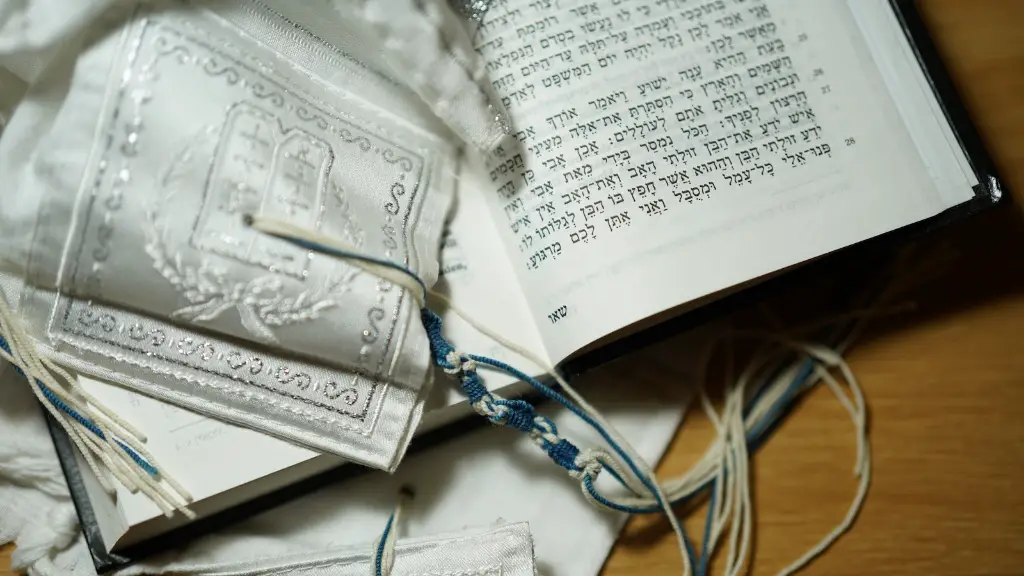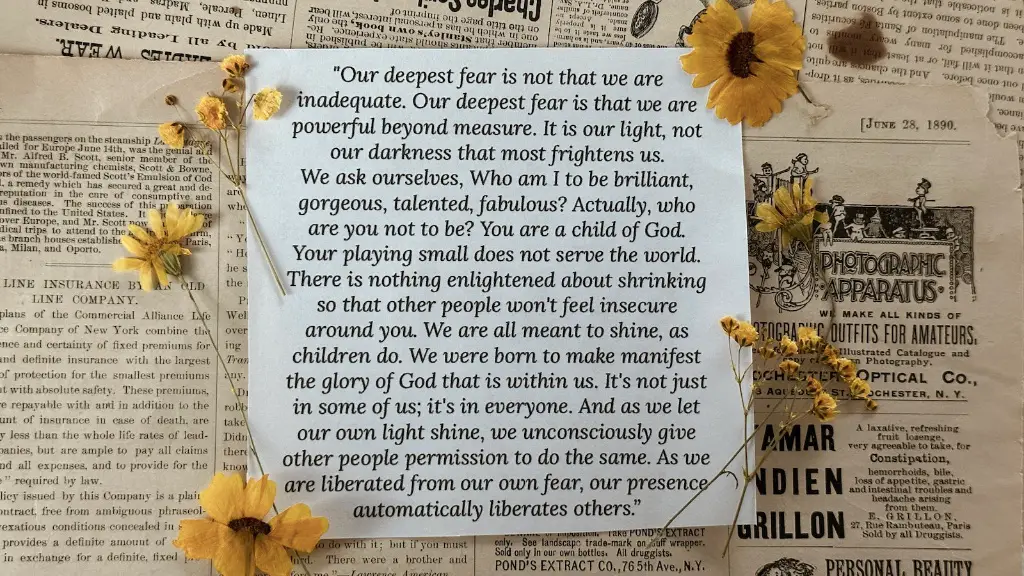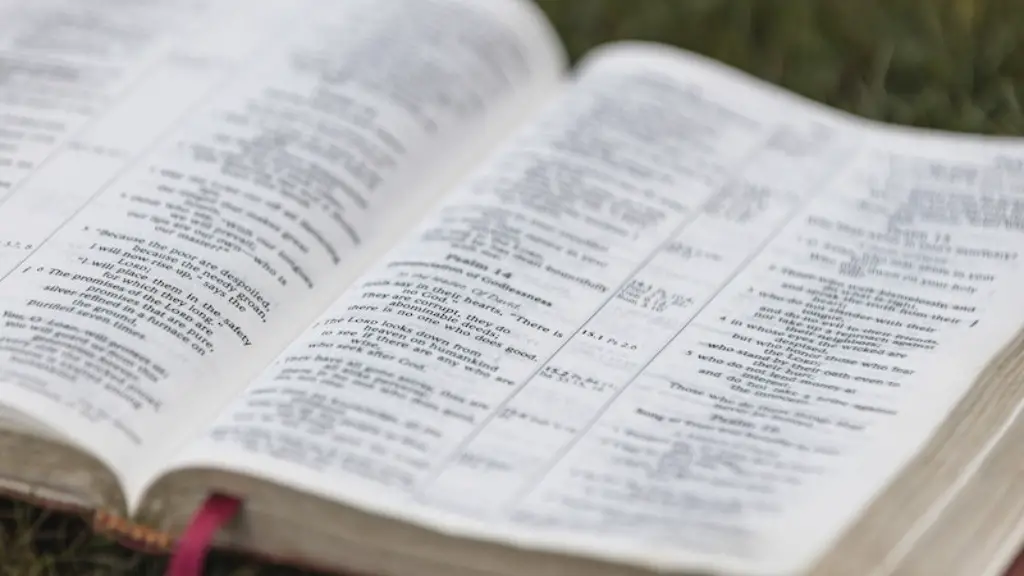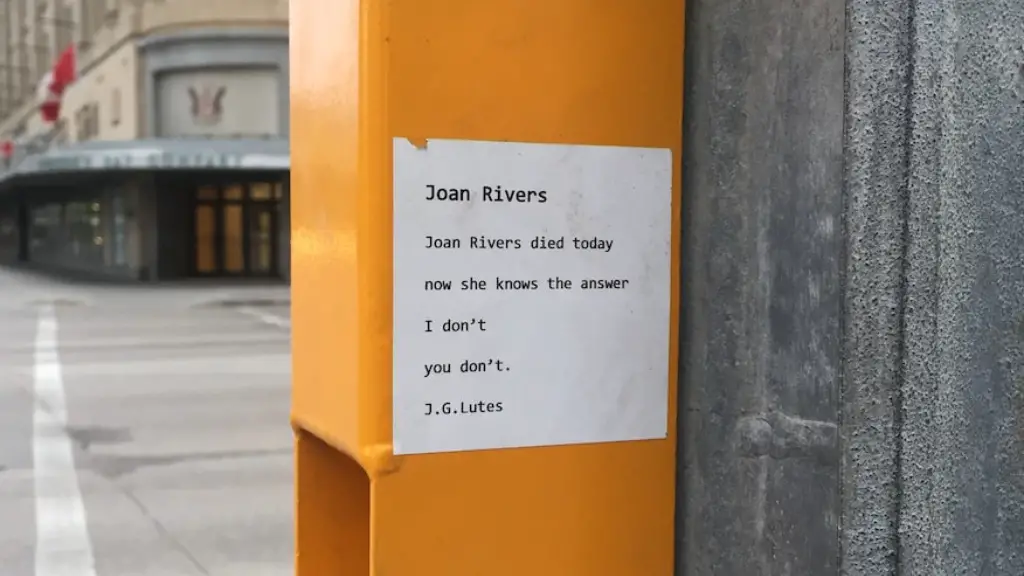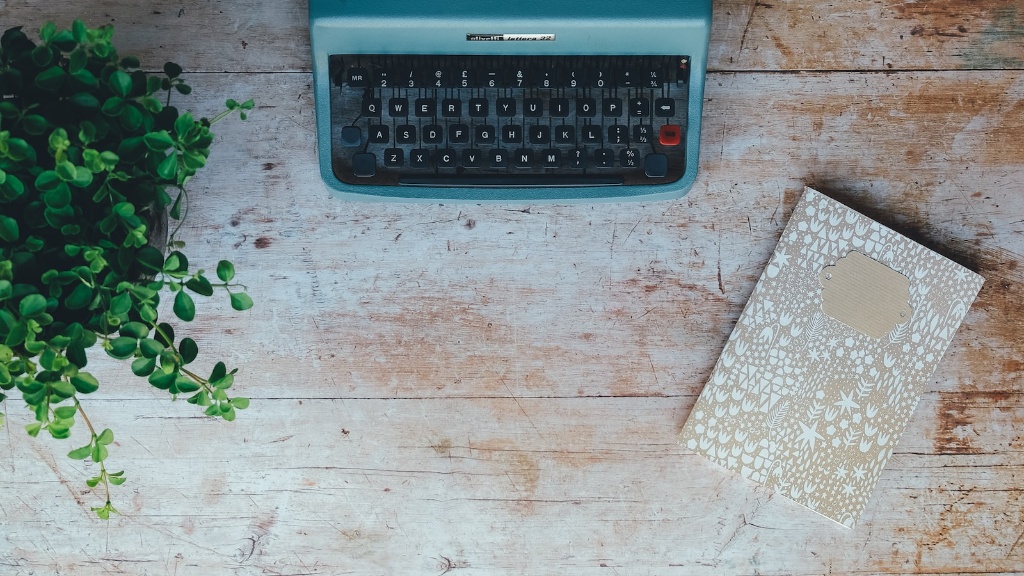How to write poetry well
The art of poetry is one of the most beautiful and ancient forms of expressing oneself. It is the original form of literature and throughout the ages, some of the most powerful works of literature have been poetry. There is no one-size-fits-all approach to becoming a great poem writer, however, there are some helpful tips one can follow in order to become a better at crafting meaningful, emotive and well-constructed stories through the art of poetry.
The first step in writing great poetry is simply being able to sit and reflect. Taking the time out of life’s busyness to clear one’s mind and be still is essential. It gives the writer a chance to really feel their own thoughts and emotions and express them through their words. This introspection can help create a much more vivid and meaningful poem.
The next step is learning to use the right poetic devices. From rhyme and rhythm to metaphors and similes, these devices give the reader the opportunity to express their message effectively and powerfully. When used correctly, these devices can turn an average poem into something quite special.
Structuring the poem is also vital. Good poem structure helps the writer make use of metaphor and imagery, as well as helping the reader flow along the poetry. Each line should convey something meaningful and as the poem progresses, the message should be clearly revealed.
The use of imagery is also important. Imagery helps the reader relate and engage with the poem, as well as creating an emotional response. By using descriptive language, the writer can create vivid, powerful images in the reader’s mind.
The emotion used in the poem is another essential element. It is what makes the poem powerful and helps it stand out. The writer needs to be able to tap into their emotions and use them as a tool to craft a compelling poem.
Last but not least, the poet should not be afraid to break conventions. Poetry is a form of artistic expression, and sometimes the traditional rules need to be broken in order to create something truly original and powerful. If the writer believes a certain rule needs to be broken in order to better convey their message, then they should be brave and do it!
Understand Formal Poetry
Formal poetry is a type of old and classic writing style. It’s a type of literature that follows strict rules and regulations. When crafting formal poetry, the writer needs to be aware of syllables, rhymes and rhymes schemes, as well as the structure of the poem. Being comfortable with traditional poetic forms and stanzas can help the poet be able to craft formal poetry.
Familiarizing oneself with traditional literary devices is also key. These devices help the poet construct their poem, add structure and establish an emotional connection with the reader. Knowing how to effectively use devices such as metaphor, similes and alliteration can help the poet make their poem truly powerful.
Another part of formal poetry is the use of poetic language. Using vivid, emotive and strong words can help the writer craft a beautiful, powerful poem. Poetic language also helps to convey the poet’s message and emotions, as well as helping to bring the poem to life.
Explore Free Verse
Free verse is a form of narrative poetry that doesn’t follow traditional structures and conventions. It is a more freeing and unique style of writing that allows the writer to express their thoughts in their own way. The key to writing great free verse poetry is to focus more on the story, imagery and emotion, rather than worrying about sticking to a certain structure or literary devices.
The poet should focus on the story they are trying to tell, and be sure that each line helps to progress this story. Imagery and emotion are also key components to free verse. By using descriptive language and powerful emotions, the writer can create vivid images in the reader’s mind and evoke an emotional response from them.
Lastly, the poet should be sure to really dig deep and connect with their thoughts and feelings. Free verse is a great form of self-expression and it allows the poet to truly express who they are and what they believe. Don’t be afraid to break conventions and to express something unique!
Populate Your Poetry with Good Language
Good language is an essential part of any form of poetry. Use of imagery and descriptive language is key in making your poem stand out. The ability to create beautiful, vivid images in the reader’s mind is what helps a poem become truly alive and powerful.
Using advanced grammatical structures can also help the poem flow nicely and sound more poetic. It’s important to find a balance between regular language and poetic language, as going overboard can make the poem sound too complex and even confusing.
Emotional language should also be used to create an emotional connection with the reader. The poet should be able to tap into their own emotions and use them to craft an emotive and powerful poem. Use of emotional triggers is also a great way to evoke an emotional response from the reader.
Employ Active Voice
Using the active voice rather than the passive voice is essential when crafting great poetry. The active voice helps with word economy and gives the poem a strong and forceful tone. It also helps to remove any ambiguity regarding who is doing the action, and keeps the poem more dynamic.
It’s important to ensure that all declarative statements in the poem are in the active voice. Going through the poem and replacing any passive sentences with active ones can help give the poem more clarity and focus.
Using the active voice also helps the poet to create vivid and exciting imagery, as well as conveying their message even more effectively. It’s a great way to really bring the poem to life and create an emotional response in the reader.
Explore Different Poetic Movements
Exploring different poetic movements is a great way to gain a better understanding of how poetry has changed over the years and to be able to identify different styles. A good starting point is to look at the Romantic movement. As the name suggests, many of the poems during this period focused heavily on love, emotion and relationship.
The next step is to look into the Imagist movement. This style of poetry focused more on precision, economy of words and images. The aim was to capture the essence of the subject being written about in as few words as possible.
The Beat movement was a genre of poetry that focused on raw emotion and deep internal introspection. It was a very personal and free form of poetry that allowed the writer to express their thoughts, emotions and beliefs.
Finally, one should look into the modernist movement. This style of writing is more focused on experimentation and breaking conventions. It’s a great way to take the traditional style of poetry and turn it upside down.
Use Technology to Help
The world of technology and the internet has opened up a great number of tools to help poets learn and improve their craft. There are a great number of websites and apps dedicated to teaching people how to write good poetry.
This includes tools such as rhyming dictionaries, which can help writers to find the right word to express their thoughts. The internet also has a vast selection of resources on different poetic constructs, helping poets to refine their writing.
Poets can also use technology as a platform to showcase their work. Social media can be a great way to share one’s work and gain feedback from other poets and readers. There are also many online forums dedicated to poetry which can be used to exchange opinions and share experiences.
Collaborate with Other Poets
Collaborating and working with other poets is a great way to expand one’s skills and gain insight into the craft. It can be an exciting and productive way to learn, as well as being an enjoyable experience. When collaborating with other poets, the writer should be sure to be open and honest with their feedback.
By offering constructive criticism, the poet can help the other writer improve, as well as helping themselves to become a better poem writer. There are many online groups and forums dedicated to poetry collaboration and these can be a great starting point.
Workshops are also a great way to collaborate and learn from others. Many universities and poetry organizations offer teacher-led workshops and classes that can help the poet refine their skills. Working people from all walks of life who can offer different perspectives can be a very valuable learning experience.
Release the Creativity Flow
The key to writing great poetry is to allow creativity to flow freely. Writing should be free from any prejudices or judgement, and the poet should not be afraid of taking risks. Being imaginative and exploring different ideas and concepts can help create something truly beautiful and powerful.
Allowing the poem to progress naturally is also essential. Too much planning in the early stages can make the poem feel stiff and robotic, even if the writer is following traditional methods. It’s important to let the poem come to life its own way and to accept whatever comes out.
Lastly, the writer should never give up. Writing good poetry takes time and effort, and good poems don’t always come to fruition. It’s important to stay motivated and keep practicing, as one never knows when their hard work will pay off.
Engage with Other Writers
Engaging and networking with other writers can be a great way to gain exposure for one’s work and connect with a wider audience. By joining online communities and reading other people’s work, one can gain an understanding of different perspectives and approaches to writing.
Attending poetry readings and open mic nights can also be great networking opportunities. Networking with other poets can help to broaden one’s perspective, as well as helping the poet connect with potential fans and publishers.
One should also attend workshops and retreats. These give the poet the opportunity to learn from experienced professionals, as well as being able to connect with other poets and build supportive relationships. These relationships can help the poet progress and grow in their craft.
